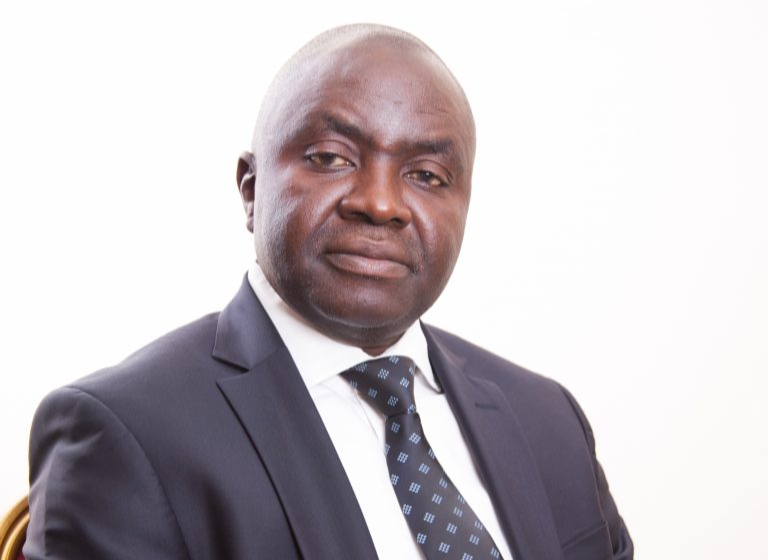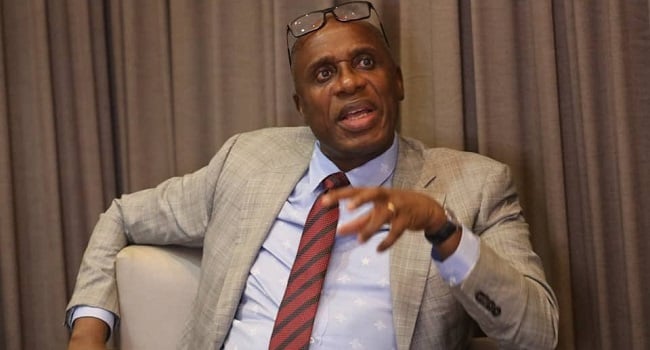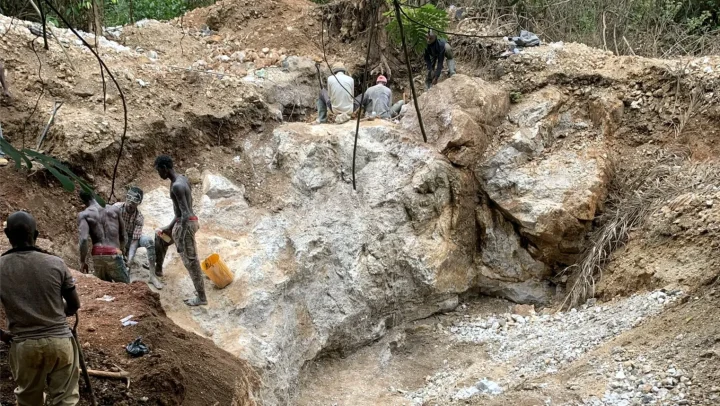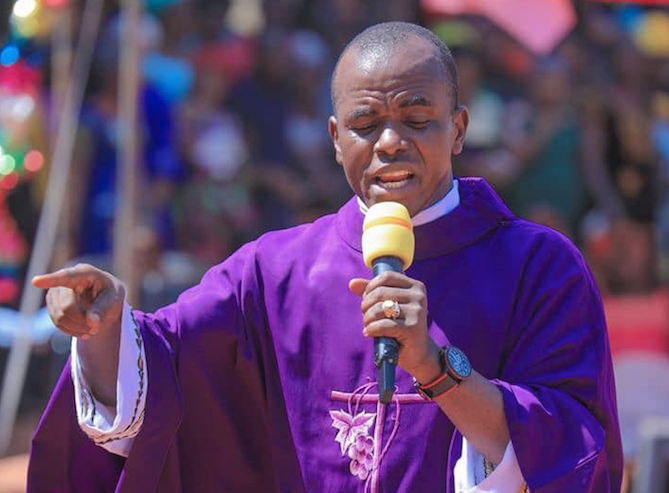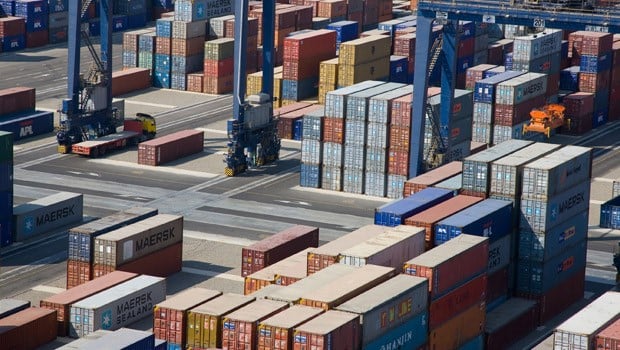In the space of one year, the Central Bank of Nigeria (CBN) has rolled out several policies that are double-edged swords. While the policies are meant to strengthen the naira, improve the foreign reserves, and rein in inflation, they are also dragging down purchasing power and increasing the cost of living and doing business.
In this interview, TheCable’s FAKOYEJO OLALEKAN spoke to Muda Yusuf, chief executive officer, Centre for the Promotion of Private Enterprise (CPPE), on the pros and cons of CBN policies as well as the need for the fiscal and monetary sides to balance their policies in order not to suffocate households and businesses.
TheCable: CBN sold FX to BDCs at rates lower than the official window in a bid to support the naira. Does this show a lack of confidence in its reforms, or is the intervention the right way to go?
Yusuf: The truth is that the policies of the CBN had some positive impact on the exchange rate, and we have seen some positive results or outcomes resulting from these measures. But it is important to stress that the outcomes we are seeing are not just about the effect of monetary policy tightening because some analysts have been ascribing the outcome to the interest rate hike. I think it’s a combination of the factors that have been responsible for that.
Advertisement
Apart from the issues of demand and supply fundamentals, there are also people issues. There are all manner of market manipulations, speculative activities, and even criminal activities such as money laundering, which the CBN has been able to address to some extent in collaboration with the anti-graft agencies. So, it’s a combination of factors that have delivered this outcome.
Now, as for the intervention, making forex available to BDCs, and some other interventions in the market, it is certainly not a demonstration of a lack of confidence in the reforms. Normally, in any economy, the CBN has a mandate to ensure price stability, and this includes exchange rate stability. Therefore, it is not out of place for the CBN to intervene to ensure that rates are not volatile. What is important is that it be done in a manner that is sustainable, taking into account the robustness of the nation’s foreign reserves.
Under the previous CBN administration, we were having an intervention of close to $1.5 billion every month. That was why we had the kind of stability that we had under that dispensation. The source of the forex for the intervention was another story altogether.
Advertisement
TheCable: Nigeria remains the only country in the world where a central bank sells FX directly to BDC operators, according to the CBN. What’s your view on this?
Yusuf: You know every economy has its own peculiarities. The nature of our economy is that, first, we have a huge informal economy, which is about 50% of our GDP. Second, the activities at the retail end of the economy are also quite significant and are better served by the BDCs. There are small forex demands that need not be handled by the banks, just as we have microfinance banks dealing with smaller financial transactions in the banking system. I think what is important is to determine their transaction thresholds. Normally, the CBN should be the custodian of all foreign exchange inflows into the economy and should provide guidance on how they should be expended to ensure a healthy external balance.
TheCable: What’s your view on the continuous hike in the interest rate and monetary tightening considering inflation has been soaring and businesses and individuals are at the receiving end?

Yusuf: Well, my view is that we need to be careful about it. We can’t dismiss it entirely because the central bank has a role to play in managing inflation. As you know, the core function of the central bank is price stability, and the instrument they have to be able to tame inflation is to adjust interest rates. That is the reason for this tightening of the monetary policy rate, the cash reserve ratio, the asymmetric corridor, and the rest.
Advertisement
These are the instruments at the disposal of the central bank. So, if the central bank must play its role as an institution saddled with ensuring price stability, these are the instruments at its disposal. So, that is why the CBN continues to do that.
But I agree with you. We should define the limits of those instruments. Otherwise, we will be hurting the economy. The CBN governor admitted that tightening could have some unintended consequences, which are negative.
He further affirmed at the last MPC meeting that the tightening was not going to last for long. He acknowledged that could hurt output growth and job creation. The truth is that persistent rate hikes could be injurious to the economy.
Real sector investors are grappling with high costs of diesel, logistics, transportation, and all manner of taxation problems, regulatory issues, and exchange rate depreciation. On top of that, you now have this additional problem of increasing the cost of funds; it can be a suffocating situation for businesses. So, that is why the CBN also needs to define the limits of rate hikes. Fighting inflation is the collective responsibility of the monetary and fiscal authorities.
Advertisement
I’m not saying that the CBN should completely be aloof, but it should not also go to the extreme of making life extremely difficult for operators in the economy. Right now, with the latest tightening, the prime lending rate will be 27–28 per cent. That’s the rate for prime customers with high credit ratings. So, you can now imagine the rate at which SMEs will be paying for funds — you are talking about between 30-35 percent.
So, if you have that kind of situation, what business can you do in this economy to give you a return of 30 per cent, even a return of 25 percent? What business? I can’t think of any. Is it manufacturing investment; is it agriculture; is it construction; is it real estate; is it mining; is it hospitality? Name it — not even trading can give you that kind of return.
Advertisement
So, it’s as good as saying that investors in the real economy in Nigeria should just stay away from the bank as far as funding is concerned because it is suicidal to take bank facilities at such a prohibitive interest rate. So, we have to be careful so that we don’t disconnect the economy from the banking system with the persistent monetary policy tightening.
Policymakers should begin to explore fiscal policy options to bring down costs in the economy. We should explore what we can do with our import duty, what we can do with tax concessions, and even subsidies where necessary for some key productive sectors. Subsidy regimes that are not vulnerable to abuse and corruption could be adopted to boost production. So, those are some of the things that I think we should now be looking at on the fiscal side to complement monetary policy measures.
Advertisement
TheCable: Inflation has been on an upward trend, along with interest rates. Is it a matter of weak monetary tools that are causing inflation to keep soaring, or are there other factors making it impossible for the CBN to rein in inflation?
Yusuf: The fact is that monetary policy instruments have their limitations. There are so many inflation drivers that are not monetary. Inflationary pressure is largely cost-push, arising from structural issues impeding production, productivity, and logistics. There are also constraints on agricultural output arising from insecurity and climate change.
Advertisement
We have been in tightening mode for close to two or three years now, and yet inflation has rarely come down because this economy is different from the economy of the advanced economies, where the consumption pattern, the spending pattern, is driven largely by credit.
Demands for goods and services in the most advanced economies are credit-driven. The consumer credit culture is deeply entrenched. Even for some of the smallest purchases, credit cards are used. Most of them use credit cards to make a wide range of purchases: houses, furniture, vehicles, clothing, groceries, and food items. So, it is a credit economy. Demands in such economies would naturally be interest rate sensitive. Thus, monetary tools are more potent in such contexts.
But in an economy where the credit content as a percentage of consumer spending is possibly less than 5 per cent, tweaking interest rates will not have any significant impact on the general price level. The credit economy is extremely weak, and the transmission mechanism and the effectiveness of monetary policy are also weak as a result.
The victims of interest rate hikes are the investors who are currently exposed to bank financing facilities, especially those in the real economy.
However, we must recognise that the context of credit or money supply growth could be an issue for inflation. It is with regards to CBN money printing, also termed Ways and Means financing. That is not coming from the public. It is not coming from consumers. It is coming from the government. That is one very significant channel of liquidity injection that has fueled inflation over the years.
TheCable: Suggestions have been made to the federal government to seek debt relief due to the impact of debt service on revenue. Is this the right step to reduce the burden on Nigeria’s revenue generation?
Yusuf: Yes, it’s not a bad idea because, in order to give some breathing space, especially when we have very tight external liquidity issues, it’s not a bad idea to seek debt relief, and when I say debt relief, it may not necessarily be debt forgiveness. It can be a question of restructuring the tenure of the funds so that there is some breathing space for the economy. It’s not a bad idea.
The good thing about our debt is that the bulk of it is actually domestic rather than external. As of December 2023, 60.7% of it was domestic debt, which is generally easier to manage than foreign debt. But as a principle, if the fiscal space is choking, then it’s not out of place to seek debt relief.
TheCable: Debt relief, or debt forgiveness, has its pros and cons. It might send the wrong messages to the creditors, affecting their confidence in a country’s economy. On the other hand, it also reduces the pressure on revenue. How does it affect Nigeria?
Yusuf: It is true that there are perception issues around the idea of debt relief or debt forgiveness. But the reality is that debt rescheduling or restructuring is an element of debt management. What may create a serious reputational problem for a country is debt default. Happily, that has not happened in Nigeria, either with respect to domestic or foreign debt.
It is better to seek debt relief than deal with the risk of debt default. Debt relief offers a country better fiscal space to manage its affairs, including its liquidity. But I believe that we are not yet in that desperate situation with regard to our debt management.
TheCable: For a long time, there has been this debate about Nigeria having a revenue or spending problem. What is your stance on this?
Yusuf: I think it is both because we are still dealing with the issue of value for money in our procurement processes and government contracts. Most corruption cases are linked to procurements and contracts. Managing public funds judiciously is still a major issue in the public sector at all levels of government. To that extent, we need to address the challenge of expenditure quality. The many cases being prosecuted by the antigraft agencies and some of the convictions underscore this position.
On the revenue side, the truth is that the revenue we are generating compared to the size of the economy is extremely low. So that means there’s an issue with the machinery for revenue administration at all levels of government. The rich segments of society are, in most instances, not paying taxes that are commensurate with their wealth. This has to change.
In more advanced tax jurisdictions, about 10 percent of the population pays 90 per cent of the income tax. This is where the concept of the progressive principle of taxation is deeply entrenched. I expect the outcomes of the Presidential Committee on Fiscal and Tax Reforms to address these issues.
TheCable: The IMF has predicted a sharp decline in reserves to about $24 billion in 2024. What are the bottlenecks that need to be loosened or policies that should be rolled out to attract investments on a large scale?
Yusuf: Well, some of the things that need to be done are already being done by this administration, namely the economic reforms. The foreign exchange policy reform is a major one that we need to be able to attract foreign investments.
We are not there yet, but I think we are making some progress. The reform would improve liquidity in the foreign exchange market, and this is very critical to the attraction of foreign capital into the economy. It is very important to deepen the confidence of investors generally, whether domestic or foreign.
Fixing the foreign exchange environment is key, and the government is already doing that. Though we are not yet where we should be, bold steps have been taken.
Other reforms that would be beneficial to the economy in the medium to long term include fuel subsidy reduction, and reform in the electricity sector, especially the decentralisation of investment in the sector. There is already a presidential committee on fiscal and tax reforms. There are also reforms ongoing in the mining sector.
But a lot more needs to be done to fix the structural bottlenecks to production: insecurity in parts of the country, the availability of long-term funds at a rate that is much less than current market rates, and many more.
The good news is that the Nigerian market is huge and offers huge opportunities for domestic and foreign investors. It is also important to have a framework for regular stakeholder consultations by the MDAs to get feedback and enrich the quality of government policy and regulations.
TheCable: What is your view on the bank recapitalisation CBN announced? Do you see some banks leaving the market, or conducting mergers and acquisitions to meet up?
Yusuf: We should recall that the recapitalisation exercise was done in 2004 under Soludo, and the process ended in 2005. That recapitalisation raised the capital base for national banks to a minimum of N25 billion. Now, N25 billion in 2005 is almost N250 billion today. N25 billion at that time was about $180 million; let’s just take that simple analysis. $180 million today at the current exchange rate, do the computation, it will give you over N250 billion.
So, when you come from the perspective of just preserving the value of the capital relative to what it was in 2005, N200 billion may not be considered to be completely out of place. Let’s also consider the capital base for the international bank, which was N50 billion, which is equivalent to N500 billion today.
So, in real terms, it is not as if those capital requirements have increased dramatically. It is a question of adjusting for inflation. The only challenge is that these reviews should have been done incrementally over time rather than waiting until close to twenty years before announcing a review.
The good news is that the banks have a notice period of two years to deal with the capitalisation issue. It is also laudable that banks have the option of either raising fresh capital, mergers and acquisitions, or opting for a lower bank categorisation.
TheCable: What do you think of SMEs seeking equity investments due to the high cost of borrowing?
Yusuf: Ordinarily, the current prohibitive interest rate should naturally predispose SMEs towards getting more equity into their businesses. But you know that there’s a cultural problem here. Most small business owners prefer 100% ownership of their businesses, even when the business is collapsing. There is the fear of losing ownership.
The trust deficit in the economy is generally extremely high. So, this orientation or mindset needs to change in order to enable SMEs to raise equity funds.
